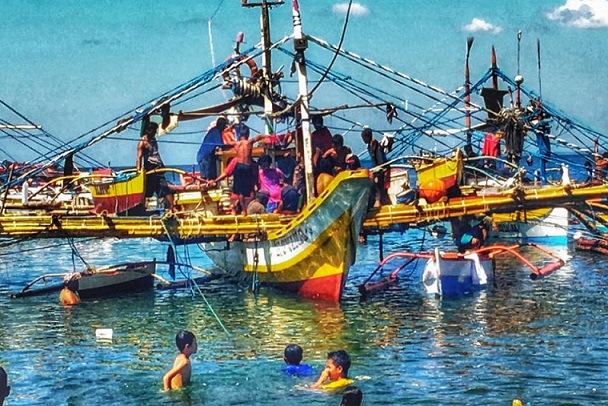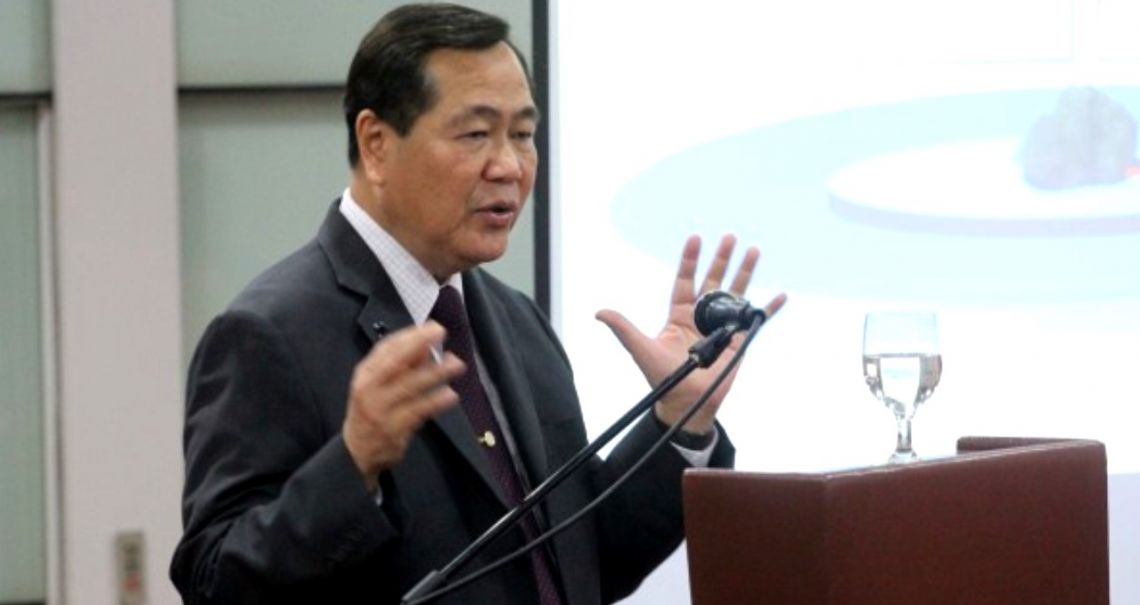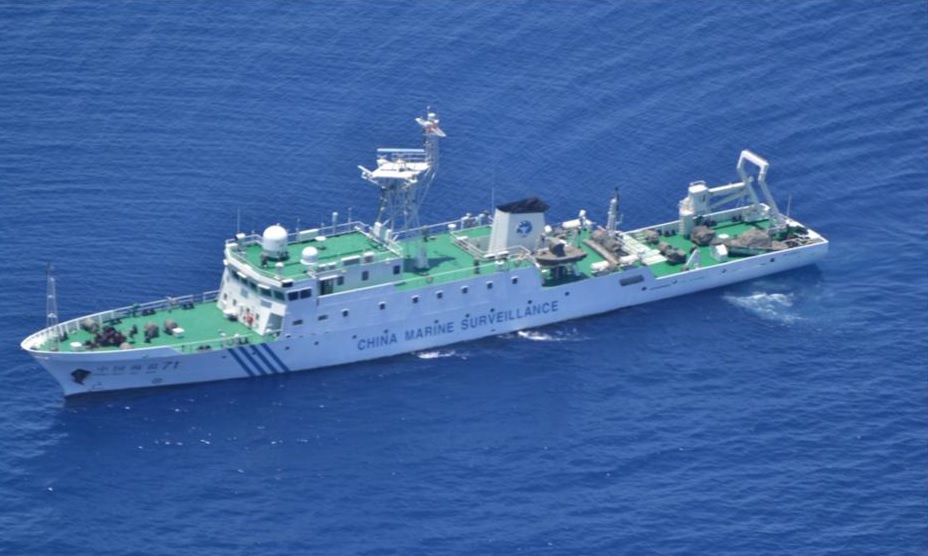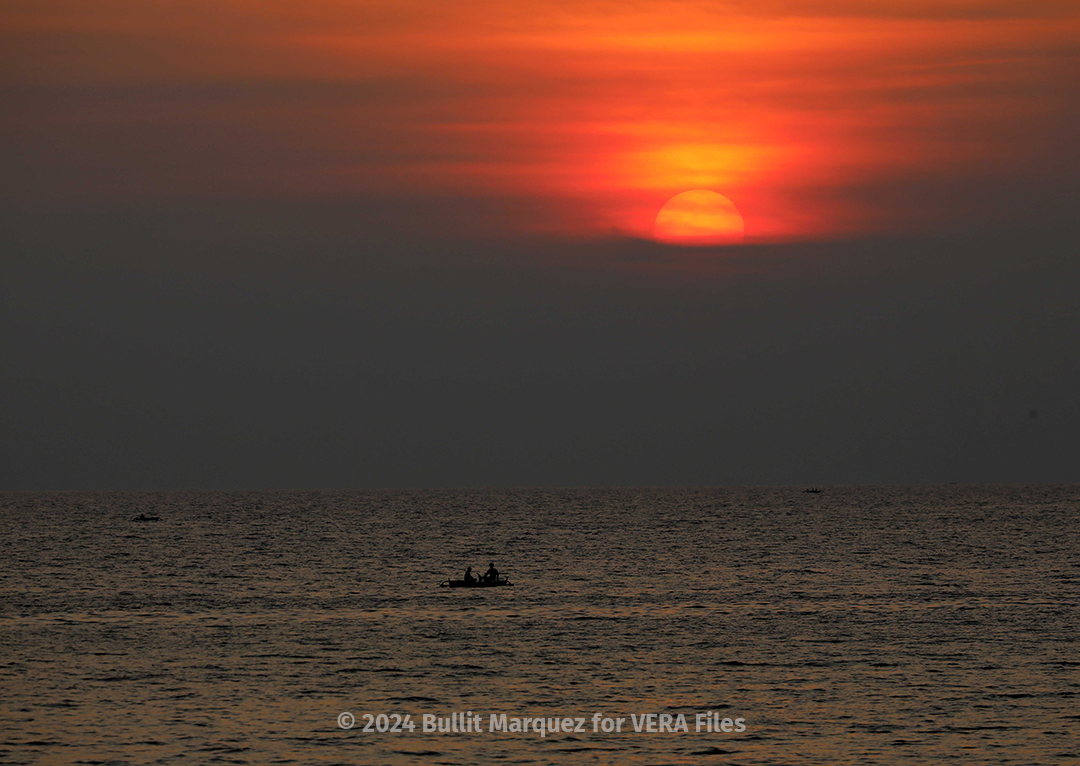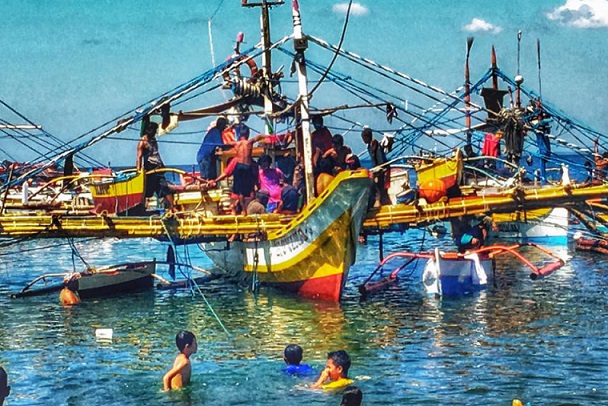
WITH the confirmation by Defense Secretary Delfin Lorenzana that the three Chinese Coast Guard ships are still in Scarborough shoal, the statement of China’s Foreign Ministry Spokesperson Hua Chunying last Monday underscored that Filipino fishermen are back in Scarborough Shoal on the benevolence of China.
Asked to confirm reports that China “okayed Philippine fishermen’s fishing near Huangyan Dao, ” Hua asserted China’s ownership and control of the area: “The Chinese side has always been exercising normal jurisdiction over Huangyan Dao. The situation there is and will remain unchanged.”
She mentioned “arrangements” made after the meeting of Duterte and Xi last Oct. 20 in Beijing.
“We have seen all-round improvement of China-Philippines relations following President Duterte’s visit to China. Under such circumstances, the Chinese side makes proper arrangements based on the friendship between China and the Philippines in response to the issue of President Duterte’s concern,”
Huangyan Dao is the Chinese name for Scarborough Shoal which fishermen call “Panatag” because that is where they seek shelter when caught by storm in high seas near Zambales. It is also called Bajo de Masinloc because of its location under Masinloc.
The name Scarborough shoal came from the tea-carrying British boat Scarborough which sank in the vicinity in 1784 on its way to China.
The rock formation had been inaccessible to Filipino fishermen since April 2012 when the arrest by a Philippine warship of eight Chinese fishing vessels loaded with their catch of endangered marine species triggered a 57-day standoff with some 80 Chinese vessels including the 1,000-ton maritime surveillance ship Yuzheng 303 and two other Coast Guard ships ranged against the three aging ships by the Philippine Coast Guard and the Bureau of Fisheries and Aquatic Resources.
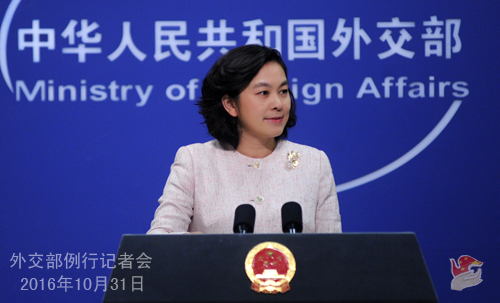
The standoff ended with the withdrawal of the ships of both sides except the three Chinese CMS which gave China control of the shoal up to now.
The Philippines brought the issue of Scarborough Shoal, the nine-dash line map, and the reclamations in the Spratlys before the Permanent Court of Arbitration in The Hague, Netherlands.
The Arbitral Court declared invalid China’s nine-dash line map. It also said that Scarborough Shoal is a traditional fishing ground for Philippine, Chinese (including Taiwanese) and Vietnamese fishermen.
The Court noted that China has unlawfully prevented Filipino fishermen from engaging in traditional fishing at Scarborough Shoal.
China, which did not participate in the case, said it did not recognize the Arbitral Court’s decision.
Senior Associate Justice Antonio T. Carpio, who studies the South China Sea issue closely and is indefatigable in giving lectures on the topic, said Hua’s statement “is a double-bladed sword. “
“An unwritten modus vivendi where China does not prevent Filipino fishermen from fishing in Scarborough Shoal can be interpreted as China’s compliance of the tribunal’s ruling that Filipinos have a traditional right to fish there, whatever state may have sovereignty over the shoal. Under this modus vivendi, both China and Philippines maintain their respective claims to sovereignty over the shoal,” he said.
“However, “he said, “if the Philippines admits, expressly or impliedly, that China has ‘allowed’ or ‘permitted’ Filipino fishermen to fish in Scarborough Shoal, then the Philippines will be acknowledging China’s sovereignty over the shoal.”
Disclosing his talk with Chinese President Xi Jinping, Duterte said, Xi told him Scarborough is theirs but he insisted that it also belonged to the Philippines: “Ang China, sabi nila, amin ‘yan. Eh sabi ko, amin man rin ‘yan.”
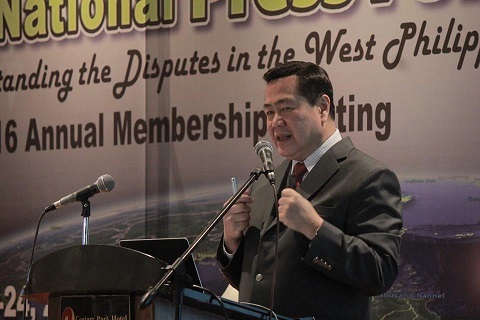
He said if Filipino fishermen would be back in Scarborough shoal, they should not go to the lagoon which is a fish spawning ground.
“Pero kung ito kung akin, kung papasok kayo uli kayong mga Pilipino, may lagoon diyan sa mga dagat. Alam mo ‘yung lagoon, ‘yung parang fishpond sa dagat, eh dagat ‘to puro blue, malalim makita mo lang may green na medyo mababaw. Those are really lagoons in the oceans and they are fish pawning grounds. Diyan nanganganak ‘yung isda, ‘yung isda na maliliit, diyan ‘yan umiikot lang sa lagoon when they are not ready to go out into the ocean. Paglaki niyan, ‘yung mga tuna, ganun, aalis ‘yan.”
“So ako na mismo ang nagsabi na kung makabalik tayo sa Scarborough Shoal bilang may-ari — eh sabi nila sila rin ang may-ari — ako na mismo magsabi, huwag kayong mangisda diyan. Iyong parang fishpond na nasa dagat. Makikita mo green instead of blue. Blue is deep, ‘yung green kasi makikita mo — it’s almost translucent or transparent maybe.
In a speech in Tuguegarao three days after the China visit, Duterte said as far as he knows, Xi had ordered withdrawal of Chinese fishermen from Scarborough.
“Ang pagkaalam ko pinaalis na rin niya ‘yung mga Chinese na fisherman at para wala nang makita diyan. Iyon ang pinag-usapan namin, ewan ko kung tutuparin nila.”
It’s not clear if what Duterte expected to leave Scarborough shoal were the Chinese ships.
The CMS are still there but Filipino fishermen are not blocked from fishing in the resource-rich waters,124 nautical miles from Zambales,
With the lowering of tension in the shoal, Carpio said “Philippine officials should uniformly state that the modus vivendi is simply a recognition of Filipino fishermen’s traditional right to fish in Scarborough Shoal as ruled by the tribunal. They should also add that the Philippines does not in any way waive its sovereignty over Scarborough Shoal under the modus vivendi.”
“Let China make its own interpretation of modus vivendi. This will be like the One China Policy agreed upon by the CCP and the KMT under the 1992 Consensus – each party is free to interpret what the policy means. In the case of the modus vivendi, China and the Philippines are free to adopt their own respective interpretations of modus vivendi.”
